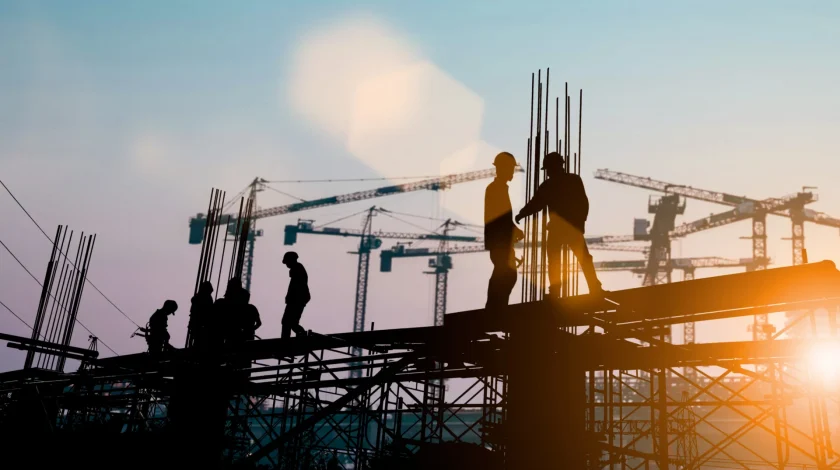Co-authored by Hayat Yassine
The Building Legislation Amendment (Building Classes) Regulation 2023 (the Amendments) was published on 24 February 2023 to improve the standard and transparency of safe and regulated construction work in New South Wales.
This change will affect those conducting business works on class 3 and 9c buildings, which will soon be subject to the same regulations and management as others.
What are class 3 and 9c buildings?
Before the Amendments, only class 2 buildings, commonly residential apartments, were governed by the Design and Building Practitioners Act 2020 (NSW) (DBP Act) and the Residential Apartment Buildings (Compliance and Enforcement Powers) Act 2020 (NSW) (RAB Act).
Class 3 buildings are for long-term or transient accommodation of unrelated individuals. They may include boarding houses, dormitories, residential parts of a detention centre and hostels larger than those covered under class 1b.
Class 9c buildings are residential structures that are designed for the care of persons with varying levels of needs, with ten percent or more of those individuals requiring physical assistance with daily activities and emergency evacuations.
How do the changes affect class 3 and 9c buildings?
From 3 July 2023, class 3 and 9c buildings will be included within the ambit of the definition of ‘building works’ in the DBP Act and the RAB Act.
These changes will be effective from 3 July 2023 on new buildings only, regardless of whether your construction certificate was issued before or after 3 July 2023.The alteration and renovation of existing buildings will come into effect on 1 July 2024.
The changes are as follows:
- Design and building practitioners and professional engineers must be registered under the DBP Act by 3 July 2023 to complete works on class 3 and 9c buildings in NSW;
- You must declare designs on the NSW Planning Portal for compliance with the Building Code of Australia before any works on these buildings commence;
- Construction must occur in accordance with declared designs;
- Building works must comply with regulations imposed by the RAB Act which gives the Department of Customer Service powers to intervene, and halt works for these buildings; and
- Developers must provide notice before the completion of works on these buildings and prior to an occupation certificate being issued. The required levy must also be paid.
I commenced building works before 3 July 2023 – does this still apply to me?
If you have commenced building works on a class 3 or 9c building, with a construction certificate or complying development certificate (CDC) the Amendments will be applied differently. You may be exempt from the registration and declaration regime imposed by the DPB and RAB Acts.
Alterations, additions, repairs, renovation, and protective works on existing buildings where no part of the building is class 2, are afforded a grace period under the Amendments. Here, the DBP Act will apply from 1 July 2024.
Despite this, the designs relied upon in works commenced before 3 July 2023 will still need to be uploaded to the NSW Planning Portal. Any subsequent works will also need to comply with the regulations imposed by the DBP and RAB Acts.
The same rule applies for works commencing before 3 July 2023, that do not require a certain certificate or CDC, and remain incomplete.
What about designs that were prepared prior to 3 July 2023?
If designs for works to commence between 2 July 2023 and 3 July 2024 were completed by a practitioner ineligible for registration, these may be reviewed by a registered design practitioner for certification.
Alternative or transitional arrangements
If you are concerned that you or another practitioner will not meet the prerequisites for registration, there is no need to stress. If you are a professional engineer or design practitioner for low to mid rise constructions, you may be eligible to apply under alternative and/or transitional arrangements until 31 December 2023.
Unfortunately, the RAB Act does not allow for transitional provisions and it will apply unconditionally to buildings that contain a class 3 or 9c part, including mixed use buildings, from 3 July 2023.
Key takeaways
All building, design and engineering professionals, as well as owners, consultants and certifiers concerned with class 3 and 9c buildings should review their obligations under the Amendments.
Practitioners should register as soon as possible to avoid facing disruptions and delays after 3 July 2023. For building practitioners without a contractors’ license or qualified supervisor certificate (and some design practitioners), registration may not be possible until after 3 July 2023.
If you are unsure of what the Amendments mean for you or how they might affect your business, please contact Coleman Greig Lawyers Building and Construction team.
Coleman Greig Lawyers provides this material as general information only. The contents of this article do not constitute legal advice and should not be relied upon as such.














